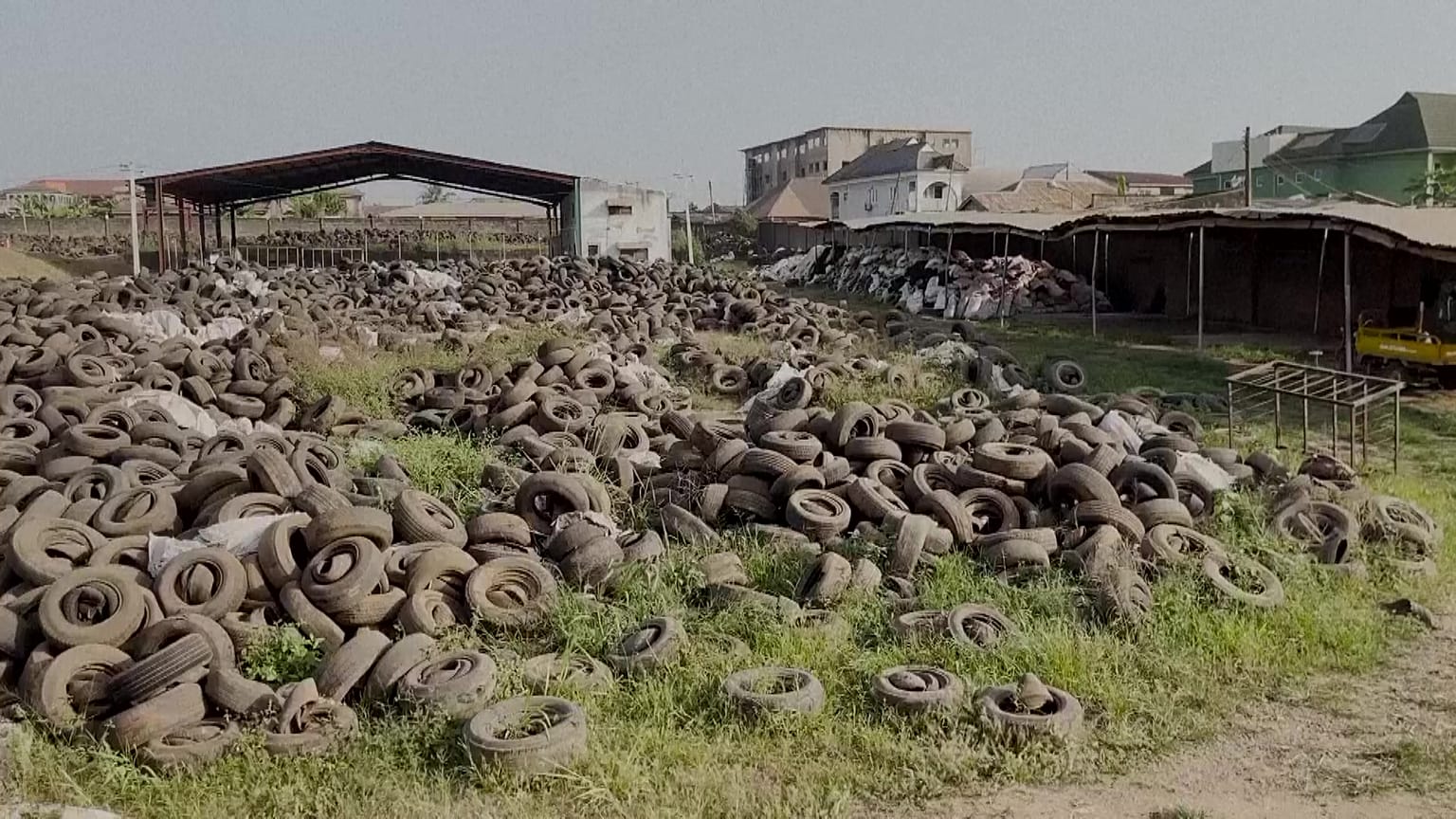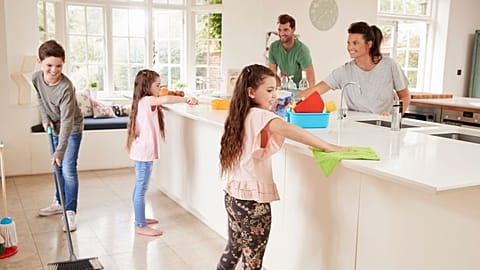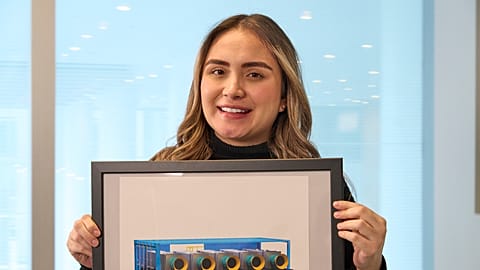The company says they have retrieved over 600,000 tyres, 400,000 of which have been recycled into new products.
A Nigerian company is giving old tyres a second life, turning waste into bricks, floor tiles and even flip-flops.
“If you take a five-minute walk or ten-minute walk, I guarantee you that you will spot at least ten tyres,” said Ifedolapo Runsewe, Freee Recycle’s managing director.
“Then you find them in drainages, you find them in street corners where they ideally shouldn't be,” she added.
According to a report by the Tire Industry Project, one billion end-of-life tyres are generated globally every year. An estimated four billion are currently in landfills and stockpiles worldwide. Freee Recycle aims to better manage that waste.
The company's most popular product is its rubber paving stone, which costs about €55 for a set of 40.
“Now we have solutions for insulation. We have solutions for transportation flooring as well,” said Runsewe.
Their flip-flops use old tyres for the bottom layer. The top layer uses a polyurethane foam, which will degrade over time and is not harmful to the environment, according to the company.
Some recycled products are slightly more expensive than their traditional counterparts. The company says this is due to the extended shelf life of the products.
To minimise waste in the production process, Freee Recycle says they use materials that are left over to create decorations in the facility.
‘From waste to wealth’
Runsewe says she was concerned about the “detrimental impact” of the abandoned tyres on the environment and public health.
“Over time, because the tyres are non-biodegradable, they spend more time in our dumpsites…For new solid waste, we usually have to resort to burning them and burning them will release CO2 emissions, as well as other greenhouse gases,” said Runsewe.
“Also, some of the tyres we've discovered end up in our drainages and during the rainy season, this contributes to flooding in some areas, especially in major cities like Lagos. And then you also have piles of tyre stockpiles in waste ground. Over time, they collect water, and this becomes a breeding ground for mosquitoes. And then you have a huge surge in the spread of malaria”.
The company says they have recycled over 400,000 tyres into new products out of over 600,000 tyres they retrieved.
Freee Recycle’s products are available in major Nigerian cities, including Lagos, Abuja, and Port Harcourt.
“A lot of people have been empowered at the factory. You can see how many people are working there, they are earning their source of livelihood there, it's a great thing,” said Bolanle Emmanuel, the southwestern Oyo State coordinator at the Nigerian Export Promotion Council.
“Before now, the majority of these tyres you see around, they waste away, and this is a source of wealth, from waste to wealth,” said Emmanuel.
Freee Recycle says it started operations in 2018 with about four employees.
The workforce has now expanded to include more than 150 on-site staff.
For more on this story, watch the video in the media player above.


















